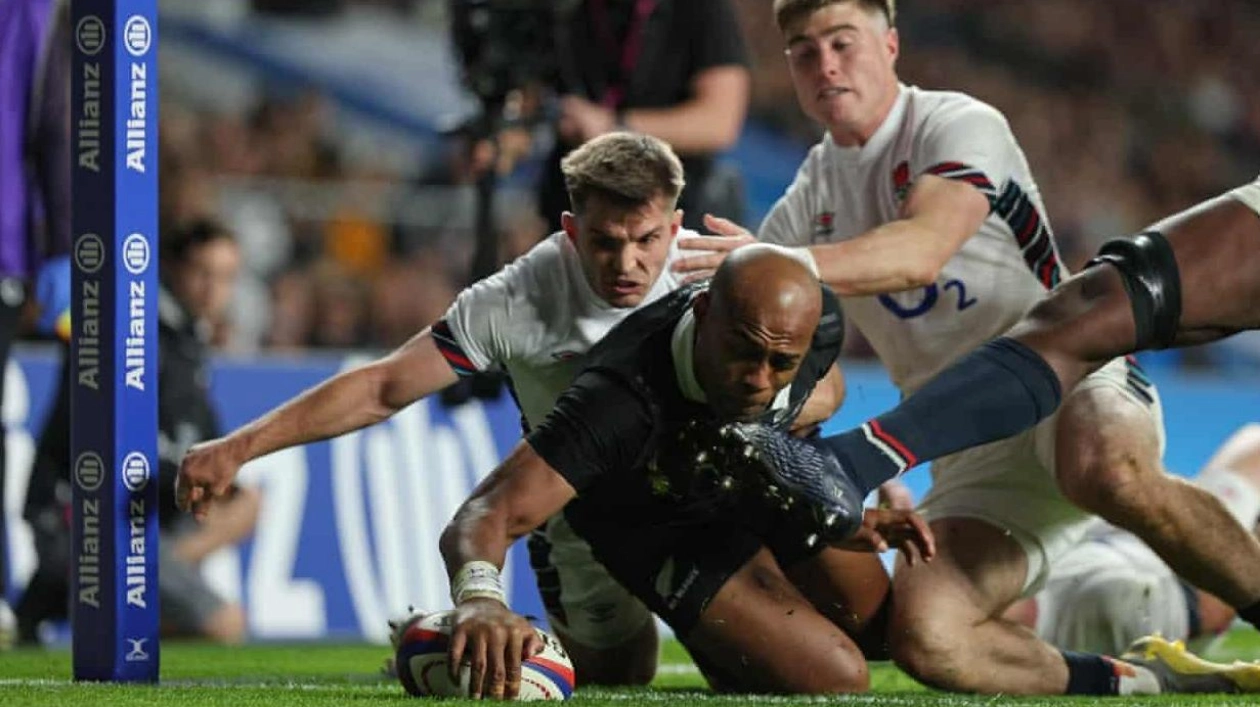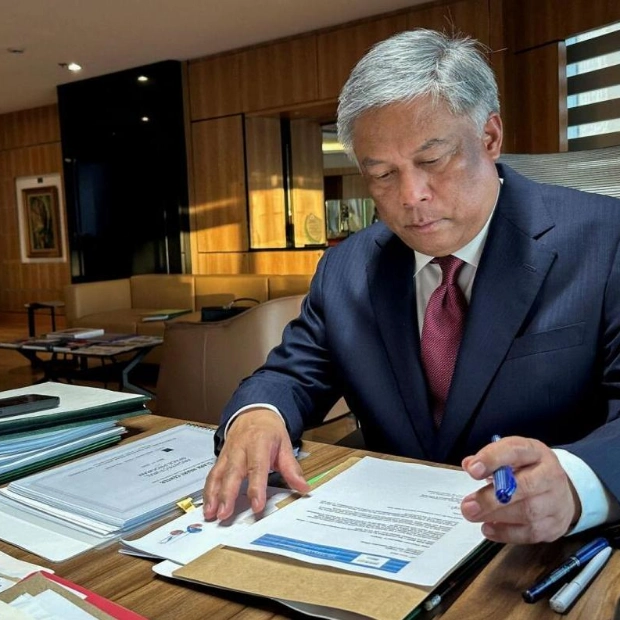The inaugural weekend of the Autumn Nations Series promised to be intriguing. Two teams in search of a morale-boosting victory, and over 80,000 spectators eager to rekindle their passion for the big match in a newly-renamed stadium. The event delivered a flawed yet classic encounter and a heart-stopping finish, where Steve Borthwick’s team narrowly missed out—yet again—on a crucial win against the All Blacks. Reclaiming the Hillary Shield would have been particularly sweet for England after their 2-0 summer series loss, but once more, they failed to capitalize on the decisive moment. A late penalty from George Ford struck a post, and with the final kick of the game, Ford also missed a drop goal that would have secured a first home victory over New Zealand in 12 years.
Everything seemed fine for England until the 76th minute when, following some skillful build-up play by Damian McKenzie, Mark Tele’a evaded Ford’s tackle to score his second try in the right corner. McKenzie’s brilliant touchline conversion put New Zealand ahead 24-22. In the end, it mattered little that the visitors had made numerous unforced errors and gifted England a crucial interception try in the 44th minute, finished by a delighted Manny Feyi-Waboso. It was, at least, a memorable occasion for all present, with the crowd stirred by their side’s approach to the haka, treated to a committed home performance, and an excellent atmosphere.
Tactically, there were early warning signs for England’s flanks. New Zealand had clearly studied England’s blitz defensive system, and two early attempted cross kicks by Beauden Barrett could easily have paid off. The abrupt departure of Felix Jones had left no time for a complete defensive overhaul, making this a tough early challenge for his replacement, Joe El-Abd. The scale of the task was further highlighted by New Zealand’s opening try. Theoretically, there should have been no space down the blind side on England’s left, but a lovely back-of-the-hand offload from Wallace Sititi gave Tele’a the chance to wrongfoot Ellis Genge and score in the corner. A winger versus a prop in such circumstances is hardly a fair contest.
England, however, were looking better with the ball. There was a clear willingness to switch the point of attack, whether from long lineout throws or cross kicks, and a couple of Smith penalties ensured there was only one point in it by the end of the first quarter. With both sides struggling for sustained rhythm, the game cried out for a flash of individual skill from either side. A little chip and gather from Beauden Barrett almost created something for the visitors, and a promising break down the left by Ben Spencer was halted only when the scrum-half put a foot in touch. The All Blacks should also have had a second try when, after a lung-bursting sequence of phases, Spencer’s opposite number Cortez Ratima failed to spot the unmarked Will Jordan outside him, and a golden opportunity went begging. It proved only a temporary reprieve, as a slick diagonal switch from Beauden Barrett sent Jordan streaking away for his 36th try in 38 Tests.
It was exactly the kind of sharp intervention that used to distinguish the best All Blacks sides. The current team may not be having a vintage year, but they still have the ability to switch on when the mood takes them. At 33, Barrett can still do things most players cannot. England needed some kind of response and found one when Chandler Cunningham-South dislodged the apostrophe from Tupou Vaa’i with a body-shuddering midfield tackle. They were also enjoying some success in the scrums, where Tamaiti Williams was finding Will Stuart a handful, allowing Smith to slide over his fourth successive penalty to narrow the gap to 14-12.
It might have been a slightly different story had the outstanding Sititi, having broken clear up the middle of the field, not thrown a forward pass to the supporting Vaa’i, who spilt it anyway with the line begging. England, too, had reason for the odd grimace when Smith, lining up a drop goal that would have put his side ahead at the interval, scuffed the chance low and wide. Was it, therefore, the ideal moment to bring on England’s winning 2003 World Cup squad for a half-time parade? Comparisons between eras are mostly impossible, but let’s just say the class of 2003 had a half-decent drop goal practitioner in their midst. In the drum-tight modern game, those little extra three-pointers are just as vital, if not more so, because there was no guarantee that New Zealand, having conceded eight penalties and 13 turnovers in the first half alone, would be so profligate after the break.
While it was clearly a blow to have lost their reliable hooker Codie Taylor after just five minutes, the All Blacks still potentially had enough on the bench to swing the contest. But England, with six forwards on the bench, also had aspirations of finding another gear and a potential game-breaking moment arrived within four minutes of the restart. When Smith intercepted Ratima’s pass, he was more than 80 metres away from the All Black line, but intelligent support from George Furbank kept the move going, and Feyi-Waboso burned off the remaining cover to score his maiden Twickenham try. New Zealand briefly thought they had responded when Caleb Clarke fed the omnipresent Barrett, who dived over. Play was correctly brought back for a Clarke knock-on 60 metres back downfield, and from the ensuing penalty, Smith’s fifth successful kick brought the crowd to their feet. Little did they know what still lay in store.
Source link: https://www.theguardian.com






